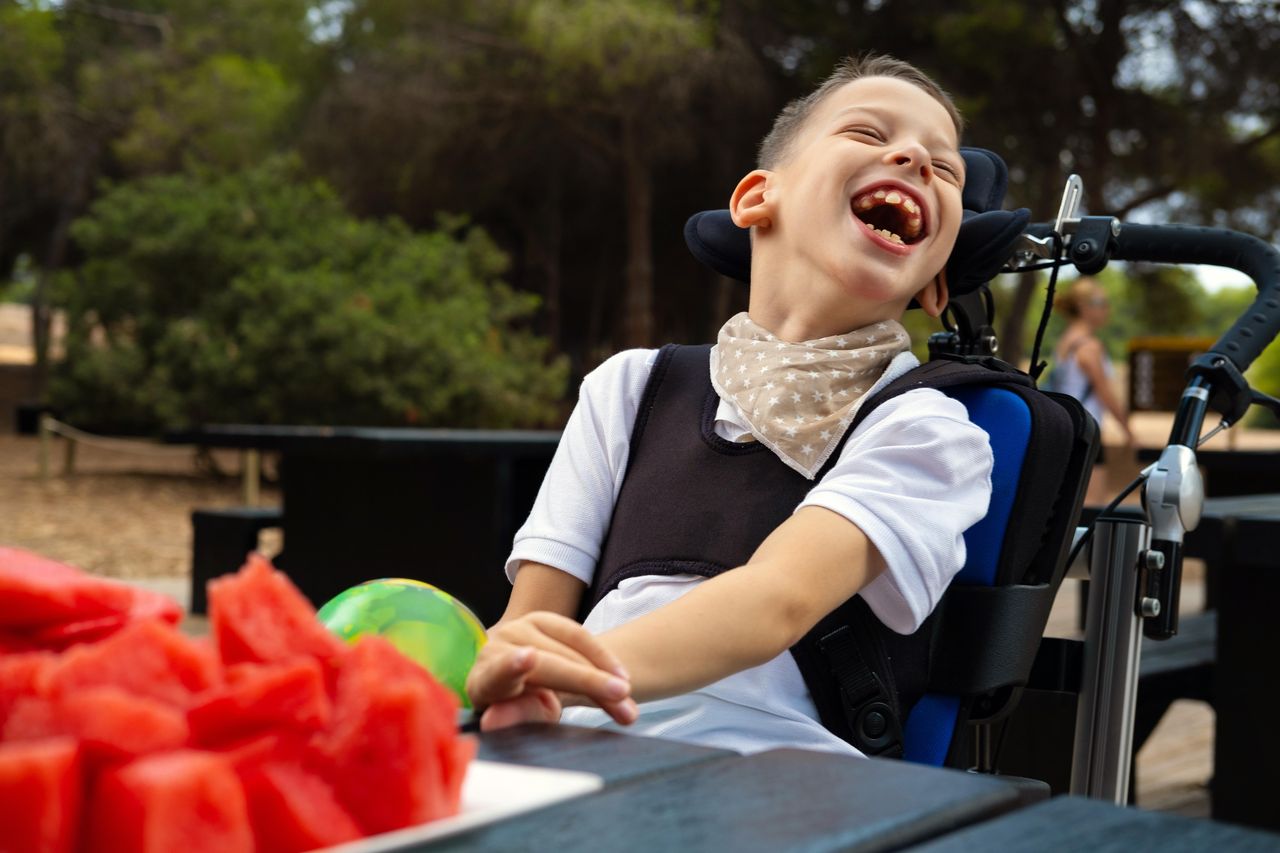Lily Collison: The earlier children with cerebral palsy can get life-changing surgery the better

Today in Ireland, I as an adult have a better chance of recovering from a stroke than if a child has one. This should keep us awake at night. Think of this: cerebral palsy (CP) is caused by an injury to an immature brain. An adult stroke is caused by an injury to a mature brain. The goal of rehabilitation following a brain injury in a child is to develop function whereas in an adult it is to restore function. Naturally, it is easier to restore what was there than to develop what never was.
The recent National Audit of Stroke shows a clear pathway and generally good care for adults following stroke whereas due to widespread problems with Progressing Disability Services, children with CP – and other conditions – are waiting excessive lengths of time for care.
I’m reminded of Gandhi’s saying: “The measure of a society is how it treats its weakest members.” We don’t have to reinvent the wheel: we only have to implement best practice, available in other parts of the world, here in Ireland.
Launched last May, the aim of the CP Programme of Excellence – a partnership between the CP Foundation, UCC, Trinity College Dublin, Royal College of Surgeons Ireland (RCSI) and the Children’s Health Ireland hospital group – is that within five years Ireland will become a world leader in CP care.
It’s a very challenging but achievable goal if we all stay focused and work smartly together. We Irish are incredibly resourceful. We have solved many healthcare challenges: look at the cancer centres of excellence.
CP is the most common physical disability in childhood and is lifelong. Unlike other conditions such as cystic fibrosis, there is no register for those with CP, so the precise number is unknown. Setting up a national CP register is part of the CP Programme.
The first six months of the CP Programme have seen the roll-out of early detection across four maternity hospitals – Holles Street, Rotunda, the Coombe, and Cork University Hospital – with training of more than 80 medical professionals nationwide.
The objective is to reduce the age of diagnosis of CP from above two years to below 12 months.
The next phase will extend the programme beyond these first four hospitals. Professor Deirdre Murray has been appointed at UCC to the post of chair of early brain injury and CP.
Why is early detection important? Early detection allows for early intervention. Early intervention takes advantage of neuroplasticity – the brain’s ability to change. The first 1,000 days of a person’s life are very important.
The ultimate target is diagnosis within three months. I have no doubt that our son Tommy could have been diagnosed at three months, thus allowing for earlier intervention.
With regard to adults with CP, this part of the programme is being led by RCSI and Ireland is now working with an international group developing a clinical practice guideline for adults with CP. This is important because adults with CP are more prone to conditions such as osteoporosis and cardiovascular disease, therefore monitoring for these needs to start earlier than in the typical population, again to allow for timely intervention.
In September a research hub called CP Life Centre was established at RCSI, under the leadership of Dr Jennifer Ryan.
For a long time there have been very effective advocacy groups for scoliosis, spina bifida and hydrocephalus, but not one for CP. We want families involved in our CP Programme – we have set up a CP advocacy group and welcome more families to join. Contact can be made by emailing edel.davinpower@yourcpf.org.
CP has a big requirement for orthopaedic surgery. We hear about delays in surgery for children with scoliosis and spina bifida, but because up to now there was no advocacy group for CP they are left out of this conversation.
As children are still growing, if they don’t get the right surgery at the right time, the opportunity for best outcome is missed. My proudest achievement is that Tommy got the right orthopaedic surgery at the right time. He is working, married, and living a full life. I fundamentally believe that getting the right orthopaedic surgery at the right time set him up for life.
I recently had spinal surgery. I feel guilty that as an adult I was able to access spinal surgery and children in Ireland cannot; that I endured only weeks of pain while many children endure years of it; that I am fully grown but these children are still growing and if their surgery is delayed, they will lose the opportunity for best outcome. At best, they end up with salvage surgery – surgery that makes the most of a bad situation, but much too late for a good outcome.
Single-event multilevel surgery (SEMLS) corrects multiple issues in a single operation, offering best outcome for children with CP. When he was nine, our son had SEMLS in the US. It was 13 procedures in a single operation. It is estimated that 65 children in Ireland require this surgery annually. Limited access to orthopaedic surgery is a major concern.
I’m proud our son Tommy is working and paying his taxes. His disability has been minimised by getting the right surgery at the right time. All the “Tommys” here deserve no less.
Lily Collison is a board member at the Cerebral Palsy Foundation